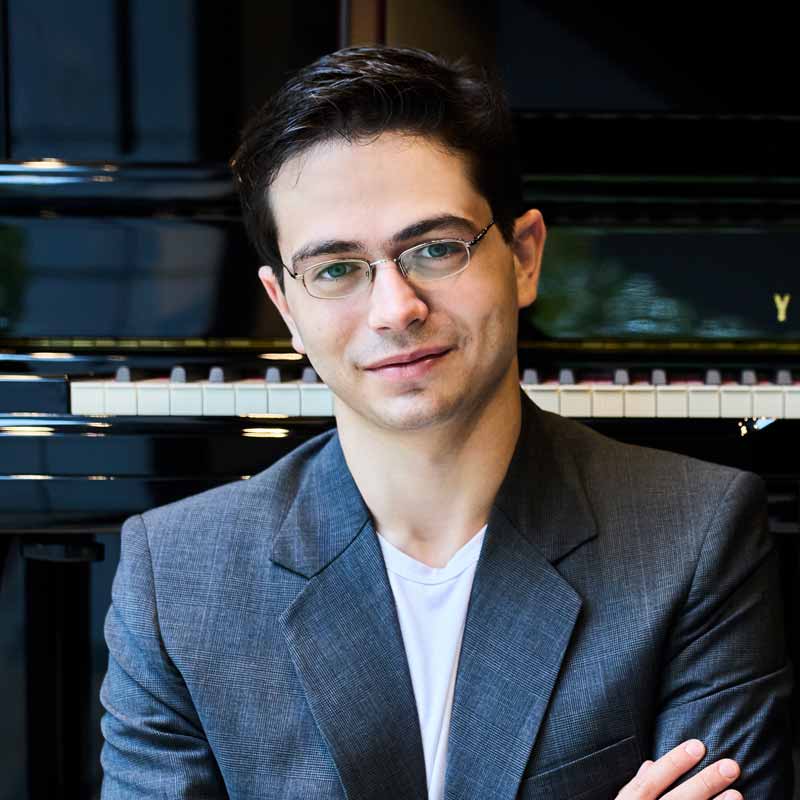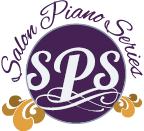Ariel Lanyi | Saturday, March 4, 2023 · 4:00PM | Salon Piano Series | Masterclass in Madison, WI

Photo Credit: Kaupo Kikkas
Ariel Lanyi
Masterclass: Saturday, March 4, 2023 · 4:00PM
Program
Bartok - Sonatina (I. Molto Moderato)
Haydn - Piano Sonata in C Major HobXVI/35 (III. Allegro)
Chopin - Étude in E Major Op. 10, No. 3
Masterclass Review by Lana Robotewskyj
Music: Black spots, symbols, lines, letters, fancy words… What is music? Is it just notes, rhythms, and expression markings?
Every one of us is a lifelong learner and student to music, regardless of age, experience, and credentials. Music demands so much more beyond reading the right notes, playing the correct rhythms, and observing the written dynamics. Above and beyond the obvious, music is the unwritten breadth in timing, the discrete direction and mapping of phrasing, the unseen soul behind the black and white, written on paper.
The question is, how DOES one learn to navigate through the journey that was arranged in detail, or contrived, in the composer's mind?
Masterclasses, hosted by the Salon Piano Series at Farley's House of Pianos, help bring insight and direction to the masterpieces. They answer the very question of the hows and whys of what's written. With guidance of highly revered and lauded pianists that are flown in, students are given help with interpreting the nuances of what makes their pieces special. Students perform in a public lesson setting, and the entire roomful of spectators and said student together learn the translations of what is on the page, and what isn't seen.
The Salon Piano Series was so fortunate to have the talented Israeli pianist, Ariel Lanyi, visit for a dynamic performance, preceded with a Masterclass.
Ariel conducted a masterclass with three exceptional Madison area piano students on March 4, 2023. Pieces that were performed were the first movement of Bartok's Sonatina, the third movement of Haydn's Piano Sonata #35, and Chopin's Etude in E Major, Op. 10 No. 3.
Commentary for all three performers included:
- Think gestures; use more body in your choreography for more gesture in the music.
- Think character and dialogue; feel the pulse of the bigger picture.
- Hear the flow of the music and don't break it by use of too much ritardando.
- Use imagery to help exaggerate and bring out markings within the score to bring the music to life!
- By use of slower practice, listen to the harmonies and understand their value and purpose: what are they conveying in the story?
- Always project your sound! The person in the very back of a recital hall should hear your intentions as easily as the person in the front row seat.
- Hear the first note before you play it! What does it mean?
- Speak the ornaments and embellishments - sing them and translate into your fingers!
- Hear the rests and pauses - they are equally important as the notes and are what make the phrase.
- Hold and enjoy the fermatas - they bring suspense and wonderment.
- Always play a phrase the way you would sing it.
- Add pedal for added reverb.
- Use timing to bring out special nuances and sometimes to replace loud playing. Timing is everything!
- The more simple you keep the simple things, the more clarity you have.
- Speed up a bit for the longer phrasing in the Chopin.
- Find interesting notes within the music and bring light to them.
- Practice clinically, slowly, and non-legato, to hear what's really going on in the music. Your ear will pick it up more easily.
- It's the push and pull in the music that makes it so exciting.
Lastly, when playing for the public, Ariel mentioned that the performer needs to exaggerate a bit; exaggerate to the point of feeling a bit uncomfortable. What we hear in our heads, is not necessarily what everyone else hears.
As an aside, I read Vladimir Feltsman's book, Piano Lessons, and he said the exact same thing in regards to what the performer thinks they hear, and what is actually heard.
Recording yourself is a great way to gauge what needs to be done, to outwardly hear what inwardly, you think you are doing - just another piece of the puzzle of how to “project” what your mind thinks you “hear”.
Masterclasses are an indispensable means of putting the icing on the cake, of pinpointing the exact location of a destination, of fully comprehending and assembling a puzzle that was conjured in the mind of an artist. Masterclasses help unveil that which is not easily seen or understood.
Lana Robotewskyj is the founder of Melodiya Piano Academy, LLC, in Sun Prairie, WI
